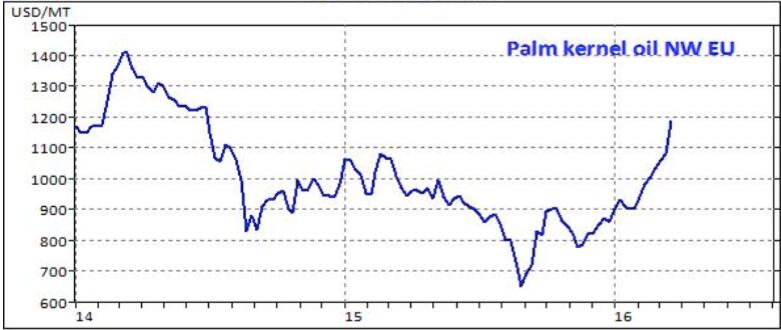According to a joint report by the United Nations Children's Fund, the World Health Organisation and Asean, the proportion of children who are both undernourished and overnourished stands at 12% each in Indonesia.
In Thailand, child wasting and overweight are both on the rise: between 2006 and 2012, wasting increased from 5-7%, and overweight from 8-11%.
According to the findings, the causes of overweight and undernutrition are intertwined. A child whose growth was stunted in early childhood is at greater risk of becoming overweight later in life.
The risk for being overweight goes up with increased access to fast-food and sugary, and physical inactivity and sedentary lifestyles.
“Many countries in Southeast Asia have seen impressive economic gains in the last decade, lifting millions of children out of poverty,” said Christiane Rudert, regional nutrition Adviser for Unicef East Asia and Pacific.
“However, at the same time we have seen the rise of conditions like obesity, previously associated with high income countries. Asian children are now at risk of malnutrition from both ends of the spectrum.”
This is an increasing trend in many countries in the region, and contributes significantly to the growing prevalence of chronic diseases like diabetes and heart conditions, the report highlights.
In addition to poverty, other contributing factors include traditional diets that lack nutritious foods, poor infant feeding practices, inadequate clean water and sanitation, and farming of a limited variety of crops.
If children are stunted, this impacts their development in other areas including health and education, affecting their chances in life.
The report finds that stunting prevalence is highest in Cambodia, Laos and Myanmar, as well as in parts of Indonesia and the Philippines.
Child malnutrition also significantly affects the economies of countries, the study found, by reducing parents' productivity and creating a burden on healthcare systems.
It can lead to non-communicable diseases, disability and even death, reducing the potential workforce. The economic cost of non-communicable diseases in Indonesia—much of it diet-related—has been estimated at US$248bn per year.
Besides UN agencies, other health organisations are also predicting a global epidemic in childhood obesity with the number of overweight children under five to jump from the present 42m to 70m over the next decade.
Marketing of unhealthy foods and non-alcoholic beverages is a major factor in the alarming increase, with the biggest rise coming from low- and middle-income countries, according to a report by the Commission on Ending Childhood Obesity, a WHO taskforce.
“Increased political commitment is needed to tackle the global challenge of childhood overweight and obesity,” said Peter Gluckman, co-chair of ECHO.
The report, which took two years to compile, recommends a number of measures to reduce child obesity and wasting.
“Overweight and obesity impact a child’s quality of life, as they face a wide range of barriers, including physical, psychological and health consequences,” ECHO co-chair SaniaNishtar said.
Other stories from Southeast Asia…
El Niño wreaks havoc on Philippines food production
Dry and wet spells brought by El Niño and La Niña are threatening the Philippines’ food security, an official has warned a special government committee on food and climate change.

Thelma Cinco, head of the impact assessment and applications section of the Philippine Atmospheric, Geophysical and Astronomical Services Administration, said that the weather phenomena are a manifestation of global warming and would directly affect the country’s agricultural production.
Moreover, she said that global warming was also expected to bring an average of 19 weather disturbances each year, with the latest data showing that unseasonably dry spells caused agricultural losses worth PHP4.8bn (US$104m) last month alone.
The figures, by the Department of Agriculture, also revealed that 349,620 tonnes of crops were destroyed and 121,490 farmers affected in March.
Hardest hit were corn fields, which suffered damage valued at PHP2.7bn, while losses to rice fields reached PHP2bn. High-value crops recorded a production deficit amounting to PHP21.6m.
To continue implementing an action plan agreed last year to counter damage caused by El Niño, the DoA will need an additional PHP3bn, which cannot no be allocated due to changes to the government’s bureaucratic accounting processes.
Nestlé expands Singapore research centre with A*STAR
Nestlé will expand its innovation activities in Asia by opening of a research centre in Biopolis, Singapore’s biomedical research hub.

The move, in partnership with Singapore’s science research agency A*STAR, will have a focus on healthy ageing at a time when longer life expectancy and a marked decline in fertility rates have brought about rapidly ageing global population.
Nestlé is expected to increase its headcount at the research centre by 25 over the next three to five years, including key positions such as the head of Nestlé’s healthy ageing programme, Fabrizio Agrigoni, who heads the centre.
“The Nestlé and A*STAR partnership has shown significant results and great potential for both partners. The collaboration and the founding of our healthy ageing programme also marks the start of a new drive of scientific innovation efforts which support unmet nutritional needs of Asia’s ageing population,” said Dr Arigoni.
With the number of Asian seniors expected to reach 1.2bn and account for 60% of the world’s population of older people by 2050, Nestlé aims to study the role of nutrition in geriatric health at the new Singapore centre.
Nestlé has collaborated with A*STAR, Singapore’s lead commercial research agency, since 2011 on research surrounding food science and technology, materials science and packaging, nutrition, health and behaviour.
The partnership has also increasingly moved towards biotransformation—the use of natural processes, such as fermentation, to transform raw materials into ingredients with nutritional or functional benefits.
Singapore has developed a strong reputation for fostering collaborations between academia and food manufacturers in recent years, with the goal of transforming itself into an Asia-wide food development hub.
From diabetic-friendly bread to cake suitable for kidney patients on haemodialysis, new food products have been formulated by scientists in the country to make it easier for the health-conscious and those with chronic diseases to boost their nutrition.
Singapore’s focus on higher education, science and industrial development cemented the country’s position as a research base for Nestlé, and will act as a bridge for research centres in China and Japan, said Stefan Catsicas, Nestlé’s global chief technology officer.
“Our priority is to participate in building an unprecedented ecosystem where the government, academia and industry worlds come together to improve people’s quality of life,” said Professor Catsicas.
“Through open innovation with key players in the region, Nestlé believes that nutritional science will provide enhanced solutions that support health and wellness.”
Lim Chuan Poh, A*STAR’s chairman, added: “We are delighted at Nestlé’s expansion in Singapore. As one of our valued partners, Nestlé has been instrumental in collaborating with A*STAR to significantly grow our research in food and nutrition in Singapore.”
Asian food industry lobby names new executive director
Food Industry Asia has named Matt Kovac as its new executive director after serving in an interim role since November 2015.

Kovac has overseen all policy and advocacy activities for FIA since 2014, and developed and implemented the industry body’s long-term advocacy strategy within the context of cultural, political and economic diversity in Asia.
Prior to joining FIA, he was the advocacy director at CropLife Asia, where he managed government relations and stakeholder engagement programmes for eight association member companies across 15 countries in Asia Pacific.
“I am very excited and honoured to take on the role of executive director at FIA. We have a fantastic team at the FIA secretariat who are passionate about representing the food industry in areas that range from health and nutrition, food safety and trade.
“This will be an exciting year ahead and FIA looks forward to building stronger partnerships across Asia to tackle many challenging societal issues.”
Amit Banati, FIA president added: “The FIA council is excited to have Matt lead FIA and the secretariat. His leadership and experience are vital to the organisation as we work with our members and partners to continue to be a respected, transparent and influential voice for the food industry in the Asia Pacific region.”
Palm oil prices now at 19-month high
Palm kernel oil prices are at 19-month high driven by reduced supply expectations from Malaysia and Indonesia, the two largest producing countries.

According to Mintec, a commodities analyst, prices for the crop have now increased by 32% since the start of the year. Moreover, the delayed effects of El Niño are expected to limit production growth and further reduce stocks.
Global production in 2015/16 is forecast to stagnate at 7.3m tonnes, while consumption is expected to increase 1% year on year to 6.9m tonnes. Ending stocks are therefore forecast down 15% year on year to 0.6m tonnes.
Price rises are also exacerbated by tightened supply in the competing coconut oil market, which is driving an increase in coconut oil prices.
